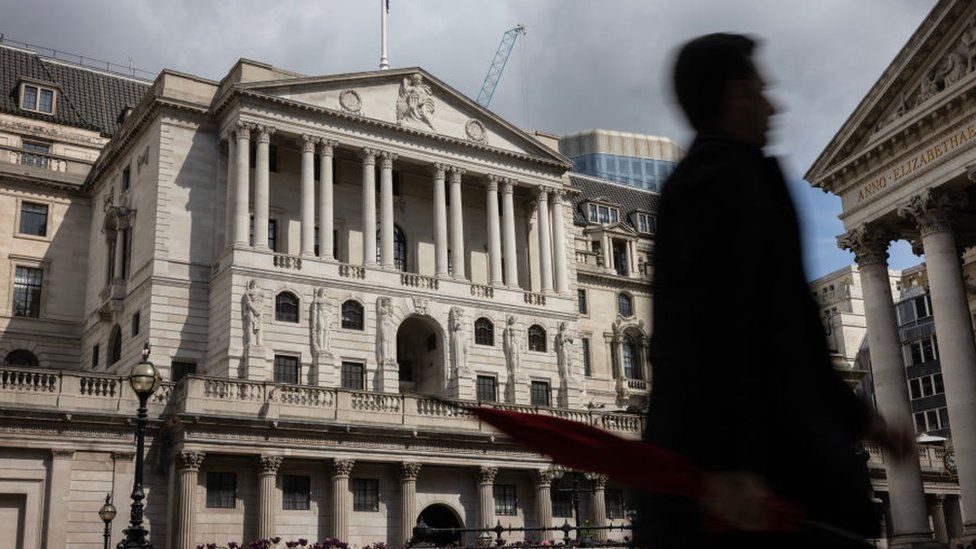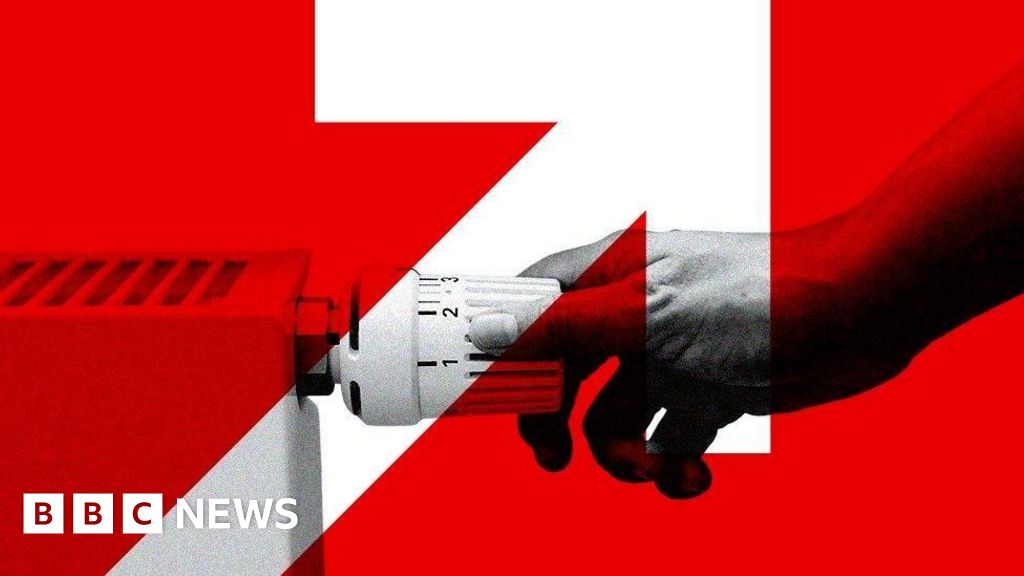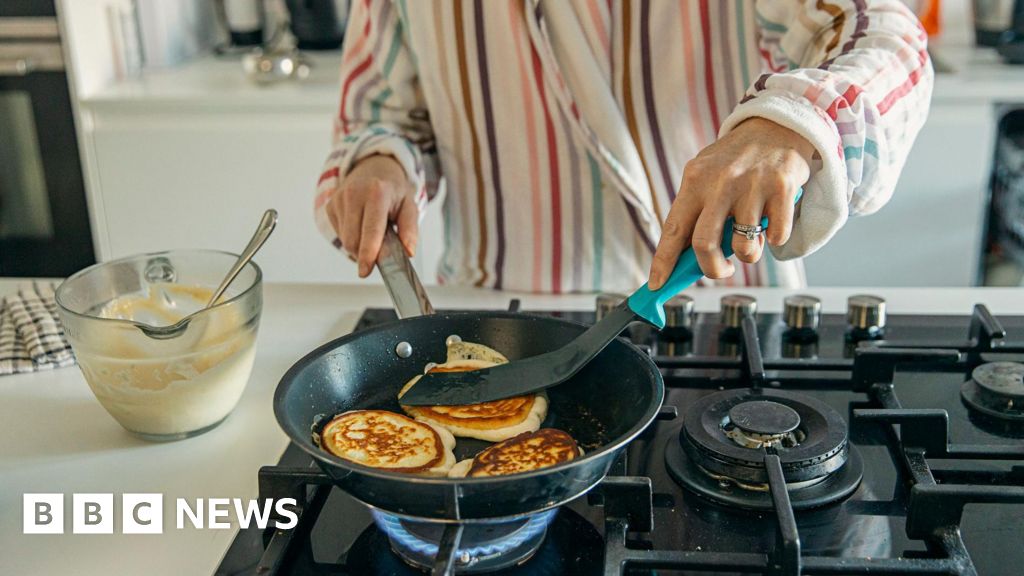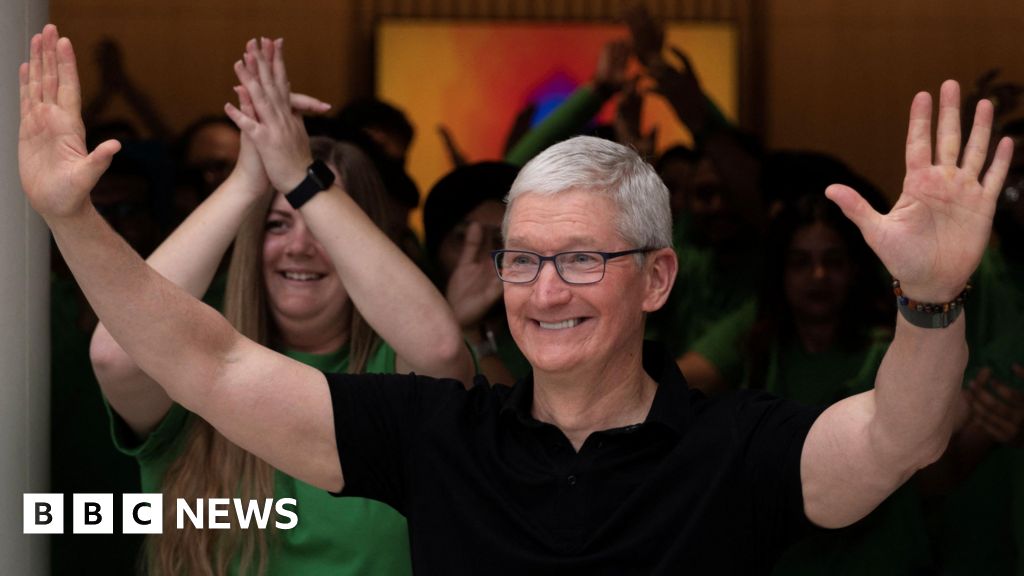ARTICLE AD BOX
 Image source, Getty Images
Image source, Getty Images
By Michael Race
Business reporter, BBC News
Investors are split over whether interest rates will be raised again after figures showed a surprise slowdown in price rises.
A 15th rise in a row to 5.5% from 5.25% was widely predicted, but now only half of investors are predicting a rise.
Expectations changed after inflation, which is the rate prices rise at, was revealed to have fallen unexpectedly to 6.7% in the year to August.
The Bank of England, which sets rates, will reveal its decision at midday.
Any rise would mean higher interest rates on some mortgages and loans, but also higher savings rates.
The Bank has been hiking rates since December 2021 in an effort to tackle inflation in the UK, which is much higher than usual and putting households under financial pressure.
By making it more expensive for people to borrow money, it hopes households will cut back and buy fewer things, and mean firms will raise prices less quickly.
But it's a balancing act as raising rates too aggressively could cause people to cut back too much and see firms struggle for survival and economic growth slow.
Investment bank Goldman Sachs said it now expected interest rates to remain unchanged on Thursday after inflation was shown to have fallen.
But other economists say because inflation is still 6.7% - much higher than the 2% the Bank of England aims for - another rate rise could be on the cards.
Higher interest rates affect different people in different ways.
Mortgage holders with variable or tracker mortgages, or those who are looking to secure a new fixed-rate deal, will find it costs more to borrow the money for their homes.
A rise from 5.25% to 5.5% would mean those on a typical tracker mortgage will pay about £26 more a month. Those on SVR mortgages would face a £14.50 jump, according to UK Finance.
Even if there is no change, compared with December 2021, those on a tracker mortgage are paying £540 more a month, or £299 more a month on a SVR.
But the majority of mortgage holders, three quarters of homeowners, are on fixed-rate deals, which shields them from the current interest rates rises, though about 800,000 deals will end by the end of this year and 1.6 million more will do so next year.
Bank of England interest rates also influence the amount charged on credit cards, bank loans and car loans.
Lenders could decide to put prices up, if they expect higher interest rates in the future.
However, people with savings should get better returns on their money.
For the government, a rise in rates has a knock-on effect meaning it has to pay more interest on the country's debt.

 1 year ago
37
1 year ago
37








 English (US) ·
English (US) ·